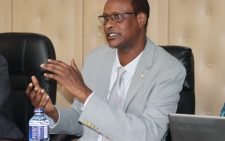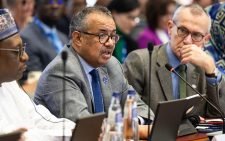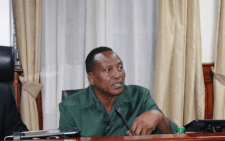Two years into President William Ruto’s term as Kenya’s fifth President, the country’s economic woes have deepened, casting doubt on the lofty promises he made on the campaign trail, as Kenyans seethe at the state of the economy.
Ruto took office when Kenya was grappling with soaring food and fuel prices, high unemployment, and an overwhelming debt burden, promising to ease the cost of living and create millions of jobs for young people.
When he took office, his administration promised to change the economic trajectory in less than 100 days. But his tenure so far has been marked by a deteriorating economy, increased borrowing, and soaring public discontent, leading to the rejection of the Finance Bill 2024, a major cog in Kenya’s strategy to generate revenue. This denied the President the authority to generate expected revenue.
Bold promises
The Ruto administration came into power with bold promises to fix the economy, tackle corruption, and prioritise low-income families in policy decisions. He also vowed to improve governance, address Kenya’s ethnically charged politics, and uphold the rule of law.
However, two years on, many Kenyans – particularly the youth and lower-income groups – feel left behind. The cost of living has risen sharply, driven by surging fuel prices and the devaluation of the Kenyan shilling. These issues have been compounded by the introduction of new and higher taxes and debt, despite the government initially promising it would reduce reliance on external borrowing.
Kenya’s public debt has ballooned during Ruto’s tenure, with a debt portfolio of Sh10.5 trillion, per the latest report from the office of the Controller of Budget. By December 2023, the debt had reached Sh11.1 trillion, a figure that is rising as the government’s borrowing appetite grows.
The combination of higher interest rates and a stronger US dollar has made financing more expensive for Kenya. The country is struggling to meet its annual $10 billion debt repayment commitments to lenders like China and other international creditors. The Financial Times estimates that Kenya’s debt-servicing costs jumped from 59.5 percent of total State revenue in the 2021-22 fiscal year to 63.5 percent in 2023-24.
As Kenya’s external debt is largely denominated in foreign currencies, the weakening of the Kenyan shilling drives up debt costs. For example, the exchange rate shifted from an average of Sh117.9 per US dollar in July 2022 to Sh141.4 in June 2023, and reached Sh159.7 in January 2024 before appreciating to Sh129.4 in June 2024.
On the domestic front, rising interest rates have contributed to an increase in the cost of borrowing. The Central Bank’s rate increased from 7.5 percent in July 2022 to 13.0 percent by June 2024. This led to a significant rise in the interest rate for the 91-day Treasury Bill, which went from 8.097 percent in July 2023 to 15.9716 per cent by June 2024, marking a 97 percent increase.
Kenya’s growing public debt has raised concerns about its impact on economic growth. According to a study by the International Monetary Fund, an unexpected one percent increase in the debt-to-GDP ratio leads to a 0.01 percent decrease in real GDP three years after the shock. While the short-term impact of debt increases on GDP is not statistically significant, the negative effects become apparent over time.
These rising debt levels and the government’s inability to stabilise the economy have led to widespread criticism of Ruto’s leadership. Many Kenyans accuse his administration of failing to deliver on promises to improve living conditions and fight corruption. Some of the country’s most prominent institutions, including NSSF and NHIF, have been embroiled in corruption scandals under Ruto’s watch. Citizens feel their voices have been ignored, with the President prioritising the interests of the elite over the needs of ordinary taxpayers.
The backlash against rising national debt and taxes, specifically the 2024/25 Finance Bill, was fierce. Young people, in particular, who overwhelmingly supported Ruto in the 2022 elections, took to the streets to protest against the bill. The protests, which erupted nationwide, forced Ruto to withdraw the bill in a bid to quell the unrest. However, the withdrawal did little to pacify the demonstrators, leading to further protests and eventually the dismissal of several Cabinet members as the President sought to address the growing discontent.
More debt
Despite the public opposition, Ruto defended his government’s financial strategy, asserting that without additional taxes, Kenya would be unable to raise sufficient revenue to manage its debt. He warned that by dropping the bill, the country would be set back two years and would have to rely on even more borrowing to keep the government running. He then proceeded to announce that Kenya would need to borrow an additional one trillion shillings to meet its financial obligations.
Another source of frustration was the discontinuation of the Kazi Mtaani programme, an initiative launched by Ruto’s predecessor, Uhuru Kenyatta, to create jobs for young people during the Covid-19 pandemic. The programme, which was rolled out in all 47 counties, offered temporary work to unemployed youth and was seen as a lifeline for many. Ruto promised to absorb these workers into his administration’s affordable housing project, but the transition has been slow.
The housing project, launched in early 2024, has allegedly created 120,000 jobs, but many young people feel excluded. Faced with unemployment and increasing economic hardship, some have turned to drugs and alcohol as a means of coping.
This has seen Ruto announce a new strategy to rope in 200,000 youths through an online platform where they register to clean rivers and use the material to set up cottage industries.
While the government claims success regarding its affordable housing project, young Kenyans are calling for broader economic reforms. They argue that the growth of small and medium-sized enterprises is being stifled by excessive taxation, which in turn discourages investment.


















